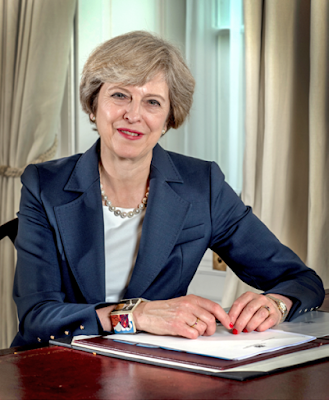 |
Conference in a new format: Some venues are switched via video. An enormes
increase in outreach.
(Source: Corporate Group Maleki) |
In this times when
political Europe is becoming more and more divisive, the financial
industry is trying to save from common European projects what can be
saved. To support this process, a new format is being created, the
conference Future Europe. The Maleki Corporate Group has organized a
simultaneous conference. Participants at several European places were
also able to make their contributions in Frankfurt, Amsterdam, Paris
and London. The forum, with top class participants at all locations,
successfully completed its entry. The event is supposed to be
continued every six months.
The welcome speach
was held by Dr. Andreas Dombret, until recently board member of the
Deutsche Bundesbank, to all participants. This format would come at
the right time. What started on European initiatives for a common
financial market must be brought to an end. Thus, after the launch of
the banking union, now capital market union must be addressed. It
should be decided whether this should happen with or without Great
Britain. Dombret cautiously points out the need to share liabilities
in Europe as well.
 |
Dr. Andreas Dombret adresses to the audiance
(Source: Thomas Seidel) |
Via a recorded
speech Peter Praet, chief economist of the European Central Bank
(ECB), warned that the banks' traditionally national ties were
another risk factor. This would hamper the creation of a true common
financial market in Europe. It is urgent to find a European solution
for a guarantee of customer deposits. In the event of a bank
collapse, it would be unavoidable in the future to involve the
taxpayer as an indirect guarantor.
Financing Europe's economy
After these
speeches, the first panel will start, titled "Financing the EU
Economy". Philippe Oddo, head of the French ODDO Bank, which not
long ago bought up the traditional German BHF Bank from Deutsche
Bank's portfolio, justified his commitment to gaining expertise in
the German market. Oddo believes that the joint potential of France
and Germany can be increased if the employees from both countries can
be motivated to work together.
Oddo considers the
German banking system as very strong and effective. This is mainly
because of the savings banks and cooperative banks. The reason for
the traditional capital market abstinence of the Germans sees Oddo in
the timidity against debt financing and poses at the same time the
question, whether the middle sized companies are really in need of a
capital market. In France, this topic is being considered much more
open. Oddo points out that between 2007 and today, the volume of the
capital market in Europe has shrunk by 40 percent, while in the same
period in the US an increase of 130 percent has taken place.
 |
The Frankfurt panel, left to right: Gerhard Schröck, Philippe Oddo,
Stefan Collignon, Michael Rüdiger, Joachim Würmeling
(Quelle: Thomas Seidel) |
Like Peter Praet,
Oddo sees the lack of a deposit insurance solution as the main
obstacle to European bank mergers. One can not use German deposits
for financing losts in other countries.
The acting
Bundesbank executive committee member Prof. Dr. Joachim Würmeling
explains that Europe's outward view has always been made by the
capital market in London, which is now being swept away by the Brexit
for Europe. Würmeling hopes that new technologies will help to
create a platform that will enable the dismantling of very fragmented
financial markets in Europe. Würmeling still sees the euro as the
common European currency in twenty years' time. At the moment there
is more than ample liquidity. But the supply of capital to some
countries in Europe could become more expensive as a result of
Brexit. In this case, Europe must take precautions.
Dr. Gerhard
Schröck of Deloitte stresses the importance of a recovery of the
European banking industry. After all, corporate finance depended for
more than half of bank loans. The establishment of the European
Banking Supervision SSM (Single Supervisory Mechanism) as a
recognized institution within just four years is a remarkable
achievement. Of course, the supervisor must now move more to a
qualitative approach based on the US model and not just pursue the
quantitative approach as before. This means that financial
supervisors need to better understand business models and the
complexity of doing business.
The second panel
on the same topic also included contributions from the video-linked
venues Paris London and Amsterdam.
Lorenzo Bini
Smaghi, the prevented ECB president and now chairman of the board of
the major French bank Société Generale, emphasizes the need for a
European capital market. At the same time he describes the obstacles.
There will be no capital market unless there were pan-European banks.
But that will not be possible without a European deposit insurance.
While in the US banks get bigger and bigger, there are too many
small-scale banks in Europe. For all this, Germany and France should
look ahead together and be oriented towards the USA. Then it needs a
schedule that one work through step by step.
 |
Crossing borders: Roland Boeckhout Amsterdam above left.,
Lorenzo Bini Smaghi Paris below leftl., Minouche Shafik London above right,
Andreas Dombret below right
(Source: Thomas Seidel) |
The Dutchman
Roland Boeckhout, board member of the Dutch ING Bank, is very
skeptical about the capital market. Europe simply lacks the knowledge
and skills. The skills are still in London. He laments the lack of
solidarity in Europe. There is a lack of objectification. At the
moment there are a lot of emotions in Europe but no European
solutions.
The president of
the German banking supervisory authority, Felix Hufeld, is surprised
that only a short time ago one had warned about too big banks "to
big to fail", but now speaking again of the necessity for
globally competitive banks. The problem in Europe is that there is a
lot of capital that is looking for profitable investments, but such
investments are hardly to find in Europe. Hufeld distinguishes
between supervision, which makes a daily work about supervision in
detail and the regulation, which he considers more as a political
task.
 |
Simultaneously in Frankfurt, from left to right: Felxis Hufeld, Andreas Dombret,
Harald Kayser
(Source: Thomas Seidel) |
Again and again,
the participants discuss the missing European capital market. Harald
Keyser, who will shortly head PwC Europe SE in Berlin, also
recommends reducing dependence on the London capital market. For
this, Europe needs more standardization and harmonization and less
competition between locations such as Paris, Amsterdam, Luxembourg
and Frankfurt. As a major obstacle, however, Keyser sees the
political decision-making emergency.
Strengthening the EURO-Zone
The next panel
focuses on strengthening the Eurozone. An introduction will be given
by the former Dutch Minister of Finance and Chairman of EURO Group
Jeroen Dijsselborn. For him, the most important homework is the
completion of banking and capital market union, but also to begin
with an improvement in labor markets and pension systems.
From the work in
the European Parliament Jakob von Weizsäcker reports. New European
projects should prove that they can make a difference step by step.
He gives an example of Frontex. Before any financing, it must be
clear what effect getting 10,000 more officials at the external
borders. But von Weizsäcker fears an end to the European project. In
more and more countries, the political orientation is to be only pros
or cons of the European Union. The awareness of the commonality is
fading.
In the typical
Prussian-Wilhelminian style ("the world should adopt the German
character") presented by the only governmental member of the
German Federal Government Thomas Steffen, State Secretary in the
Federal Ministry of Finance. For him, the mayor constraint is
currently the unsolved problem of a European deposit insurance. Many
other approaches, such as asylum policy, corporate taxation, etc. may
also be important, but the unsolved deposit insurance is currently
preventing everything in Europs financial markets. But of course, he
expects the only solution can be a German model and the repeatedly
demanded catharsis of bad loans.
 |
from left to right: Jörg Zeuner, Lüder Gerken, Stefan Collignon,
Thomas Steffen, Jakob von Weizsäcker
(Source: Thomas Seidel) |
The former
governor and current professor at the London School of Economics,
Lord Mervyn King, first lectures on the lost competitiveness of
Southern countries in Europe. They could not compensate by devaluing
within the euro. Therefore, there must be an internal devaluation,
but this would trigger high unemployment. Alternatively, one could
also promote inflation in Germany and the Netherlands, for example.
The third possibility would be to carry out transfers in Europe (the
German irritant theme par excellence). Anyway, it would inevitably
come to that. If one goes along this path without adequately
informing the electorate, it would only strengthen the right-wing
radical forces. Another problem is the lack of democratic legitimacy.
Under no circumstances should politics keep silent about the truth.
(Note: Is this a British insight from the Brexit vote?) Lord Mervyn
King then alleged with the statement: It is not Great Britain who is
leaving the European Union, but the EU is leaving Britain. Finally,
King explains the failure of the Brexit advocates. What they did not
do, was give a positive justification for remaining in the EU. They
only argued with the cost of leaving. But with such a statement you
could win no vote. Similarly, the EU should be able to communicate a
positive reasoning for Europe.
 |
from left to right: Christian Sewing, Stefan Collignon, Norbert Röttgen
(Source: Thomas Seidel) |
Then the
concentrated pessimism about Europe spreads in the upcoming debate.
It comes to statements such as by the former Italian Prime Minister
Enrico Latta, in Europe there is currently either only "no"
or „nightmares“. Christina Sewing, the youngest head of Deutsche
Bank, sees a lack of negotiable visions for Europe. The German
parliamentarian Norbert Röttgen philosophizes that at the end of the
post-war period a new epoch has not yet begun. It is not clear which
order is now resulting. For a deep disagreement prevail. It would be
discussed different value, but one do not know which values will
prevail. That's why the role of the EU in the world needs to be
redefined, including the issue of migration. The President of the
Banque de France Francoise Villeroy de Galhau finally gives a sense
of a achieved banking and capital market union. It is about
transforming the 400 billion euros of private savings into
investment.
Conclusion
Once again, this
event has made it clear that the current inability of the European
Union to work together in a constructive and collaborative manner is
putting the project Europe at an ever faster and more fundamental
risk. More than ever, everything seems to be teeters on the brink.
Even though the banks seem to be pleading for the completion of the
Banking and Capital Markets Union, they are all unable to separate
internally from their national action cultures. This is even more
true for politics. Already the pro-European fire, which briefly
caused the French President Macron to blaze, again only a faint glow.
The hope for leadership and assumption of responsibility for Europe
by Germany shatters like a striking crystal glass because of an
absurd power dispute of a small regional people's party. The forces
of perseverance on national priorities are on the rise everywhere, if
not already on the march. This is how Europe crumbles itself or is
wiped out by global reality.
 |
Nader Maleki established a new conference format
(Source: Thomas Seidel) |






























